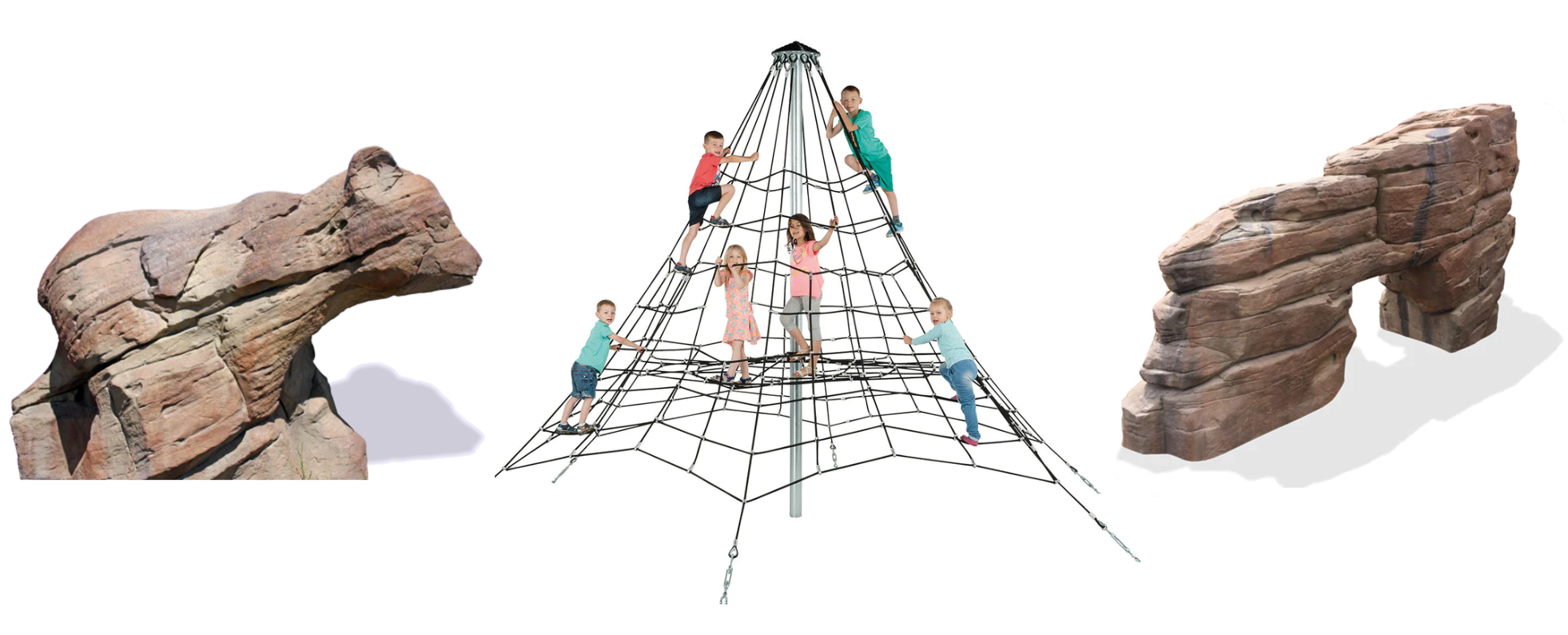Climbing is an activity that brings multiple benefits to children, being an activity that helps the development of physical, social, and emotional skills. Climbing, besides being fun, is almost instinctive, for example, the babies seek to climb in their cribs through pillows, cushions, and even when they have them loaded. From the age of 3, children can already practice climbing because they already have the basic motor skills to practice this activity either with climbing walls or in playgrounds using play boulders, elements that will allow climbing in a controlled and safe environment, transmitting confidence to parents. In this post, we will mention some benefits of climbing for children.
Increases focus and concentration
To avoid falls and be able to move correctly, children must perform different movements with their hands and feet, requiring a high degree of attention, concentration, and imagination. With each practice, these skills are progressively improved and increased, which will also have a positive impact on daily activities that require the child to pay attention, focus and deploy their creativity, for example, the execution of tasks, paying attention in class or study, helping the child be more focused and not be distracted when necessary.
When climbing, the child must maintain focused attention to take his next step without failure, working on the focus and controlling the intensity of their emotions and feelings such as frustration, despair, or anxiety to move regardless of the obstacles, which will allow the child to be calm and face the day to day activities more serenely and less impulsive.
Improved self-esteem
Climbing is a challenge that children overcome daily, trying to improve by reaching higher and higher, realizing that by working with perseverance and dedication, they can achieve all the goals they set for themselves. Climbing helps children experience positive feelings when reaching their goals, such as pride in themselves, accomplishment and satisfaction, and improving their self-esteem and self-confidence. This activity also helps avoid immediate gratification since it teaches the child that getting to the top takes time, working hard, and being consistent.
Control energy levels
Demanding activities like climbing help children combat excess energy, reduce nervousness and stress, favor relaxation once they finish playing, and help them sleep better. Channeling energy will allow children to enjoy physical activity better, maintain a healthy lifestyle, combating sedentary lifestyles and childhood obesity.
Improved physical abilities
Climbing also brings benefits on a physical level, increasing the strength and endurance of the whole body, improving psychomotor skills, achieving greater coordination between the eye and the limbs, and refining reflexes and senses such as sight and touch. There is also a better knowledge of the body, increasing skills such as laterality, balance, and agility, which also translates into greater endurance and flexibility.
Promotes self-awareness
Climbing helps children identify their limits; for example, if your height or length of arms and legs does not allow them to reach a distant goal or certain height. This will enable children to know what their range of action is, and they can gradually expand it, either by building their confidence or discovering new ways to solve problems to find a way to reach their goals.
What did you think of this topic? What other benefits do you think climbing offers?
If you want to know more about play boulders or climbing walls, you can visit the following link.
